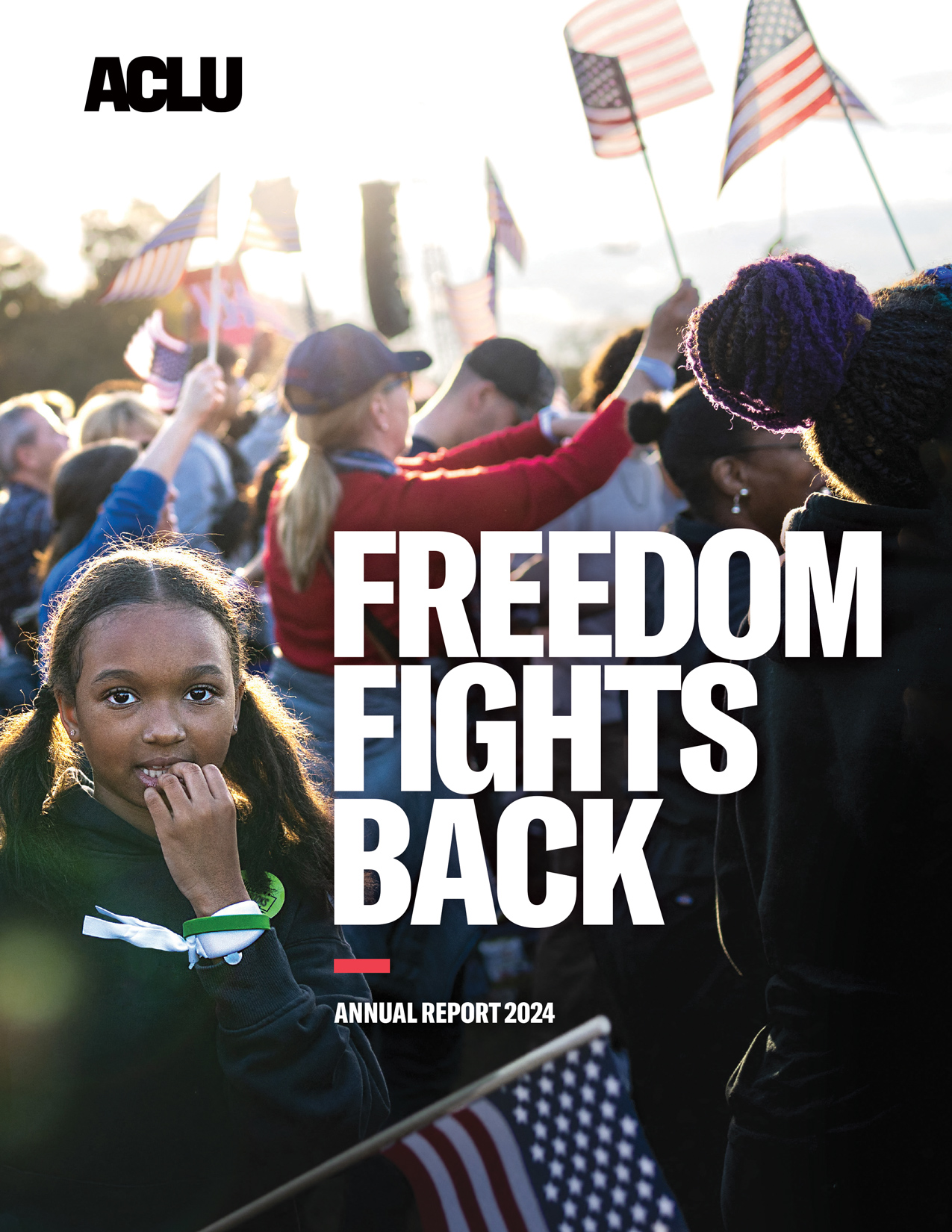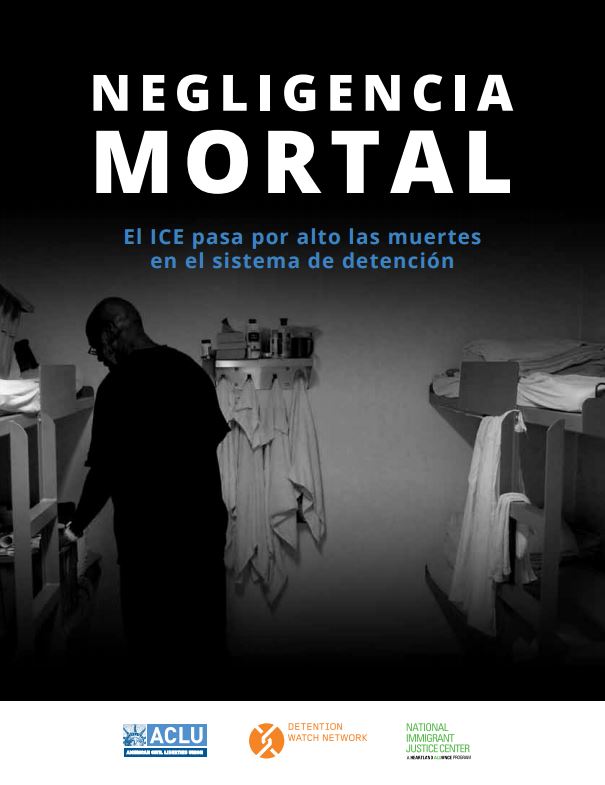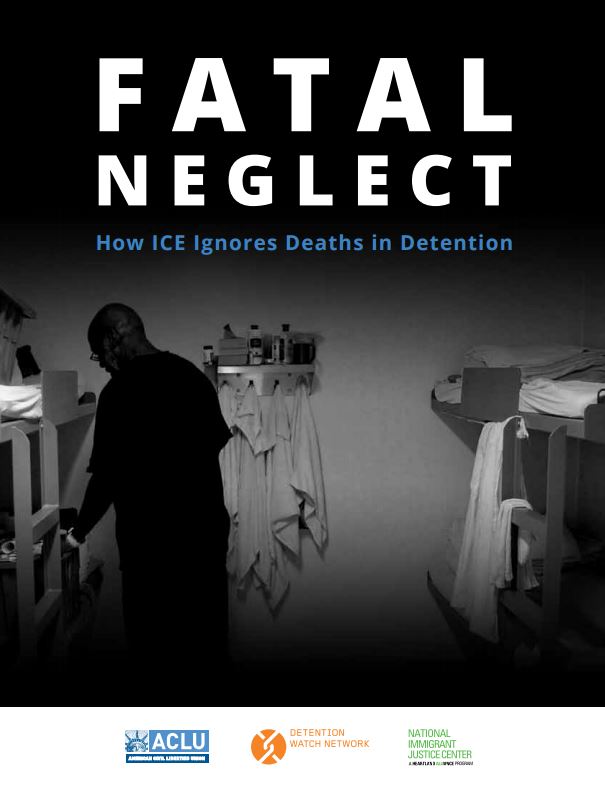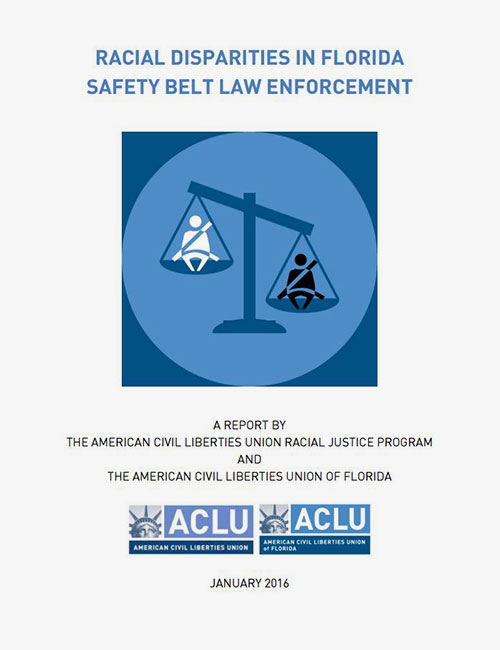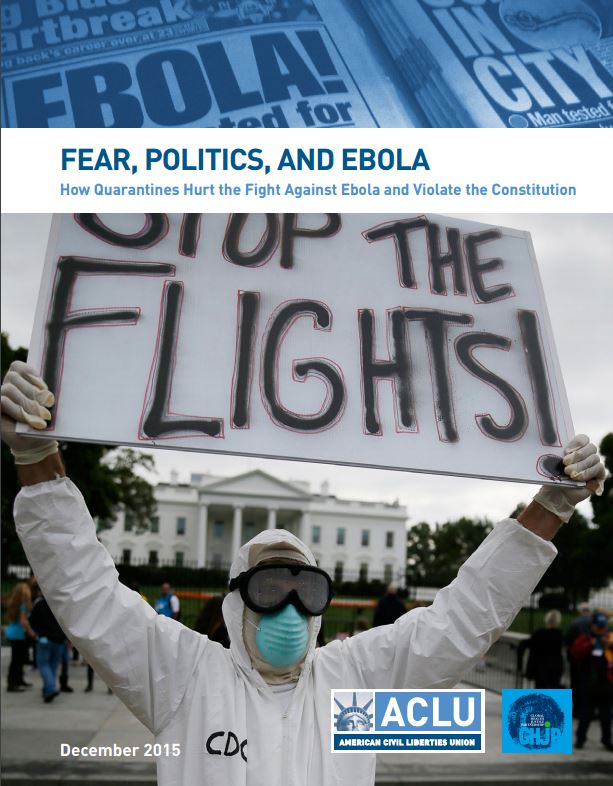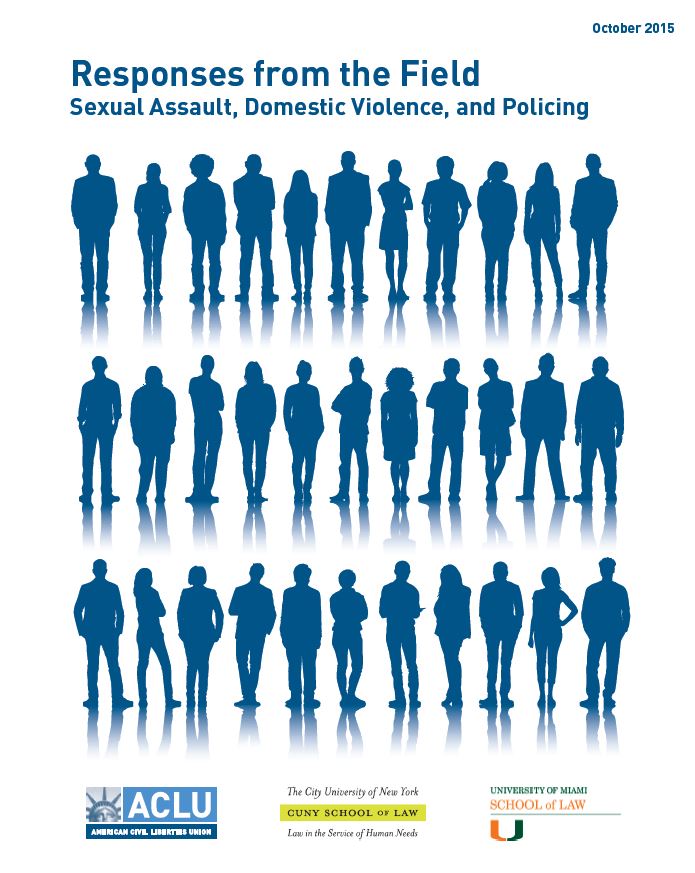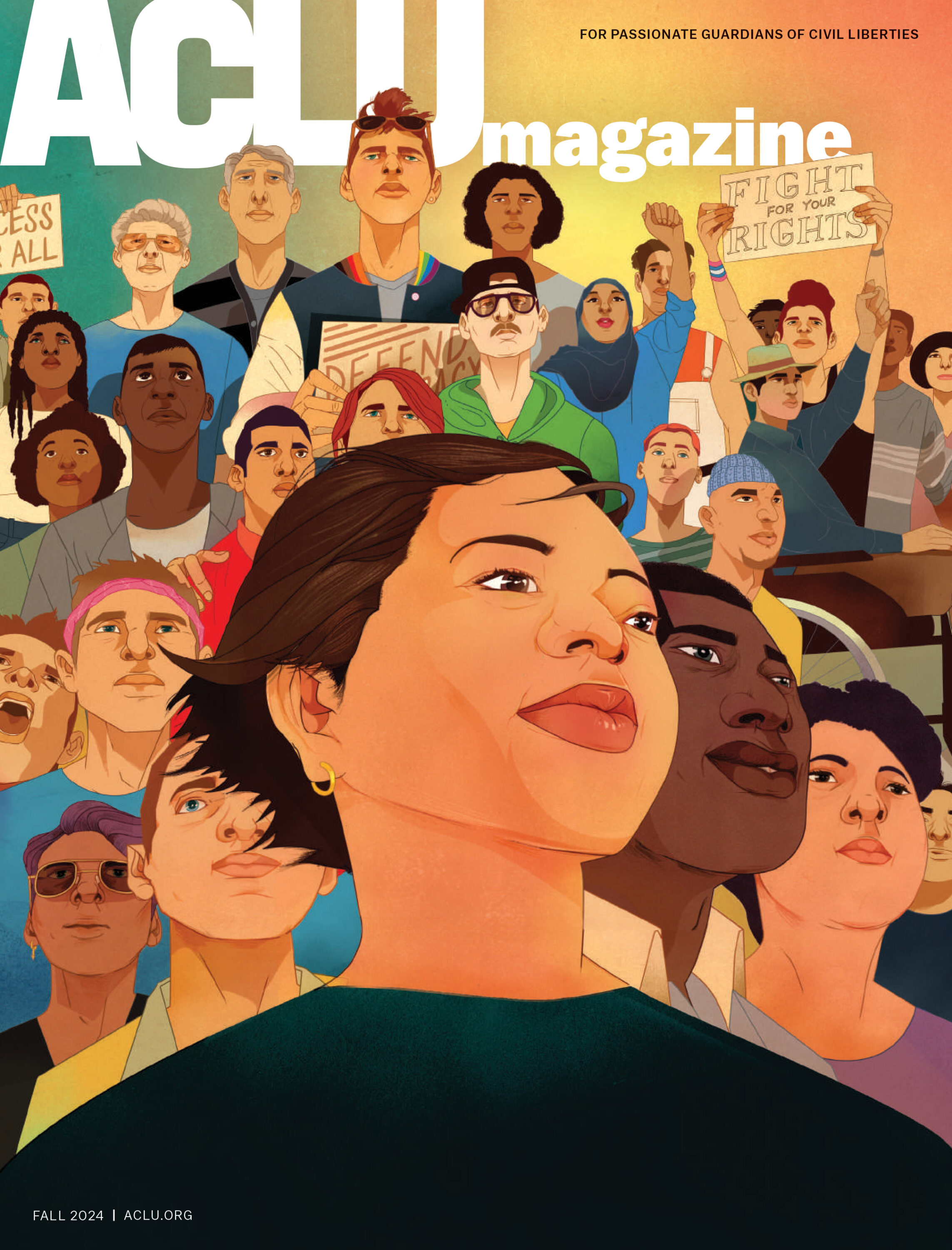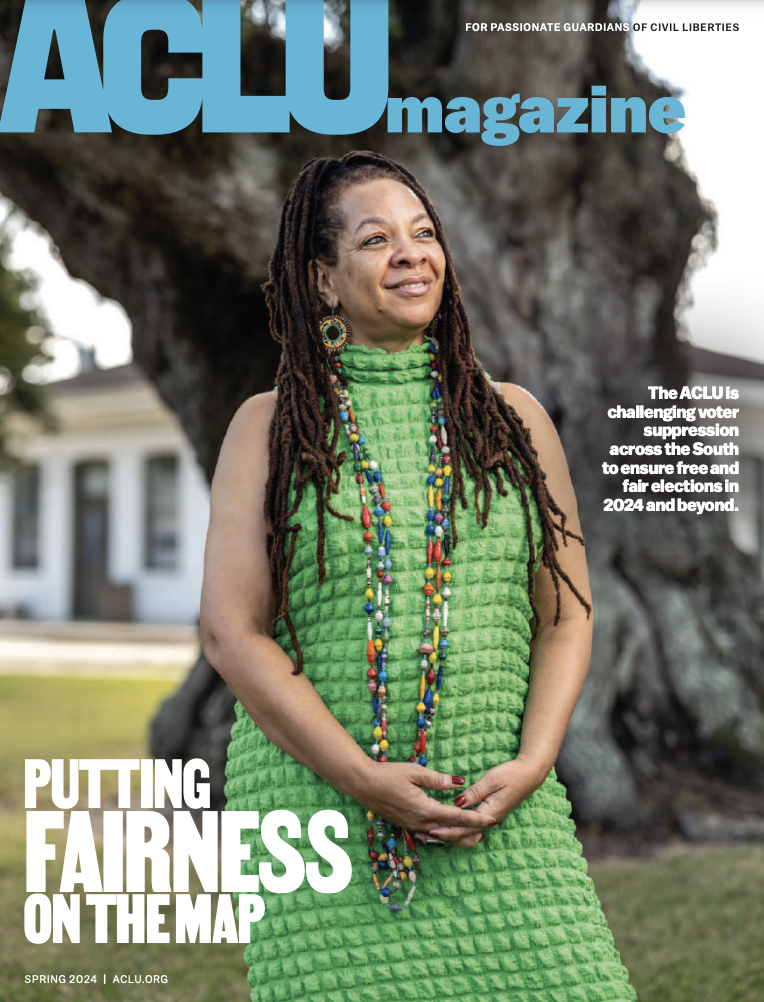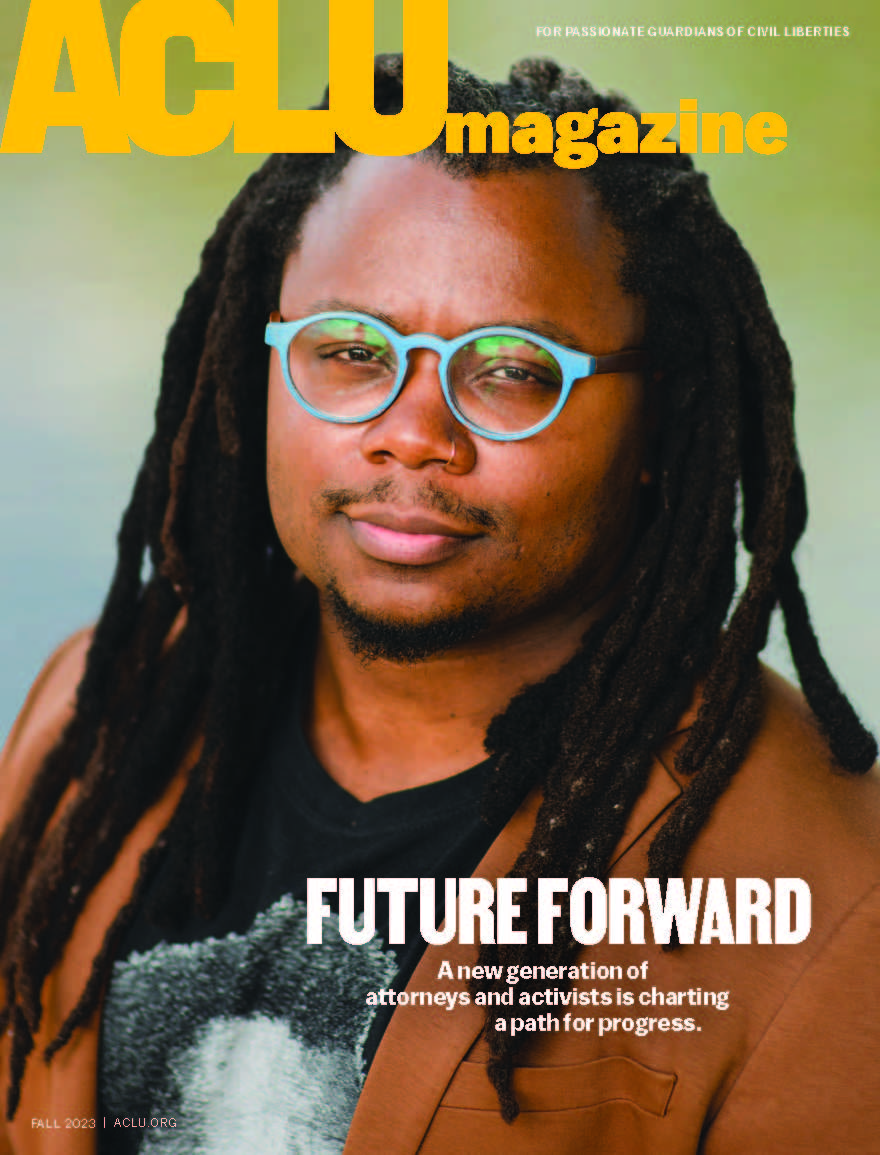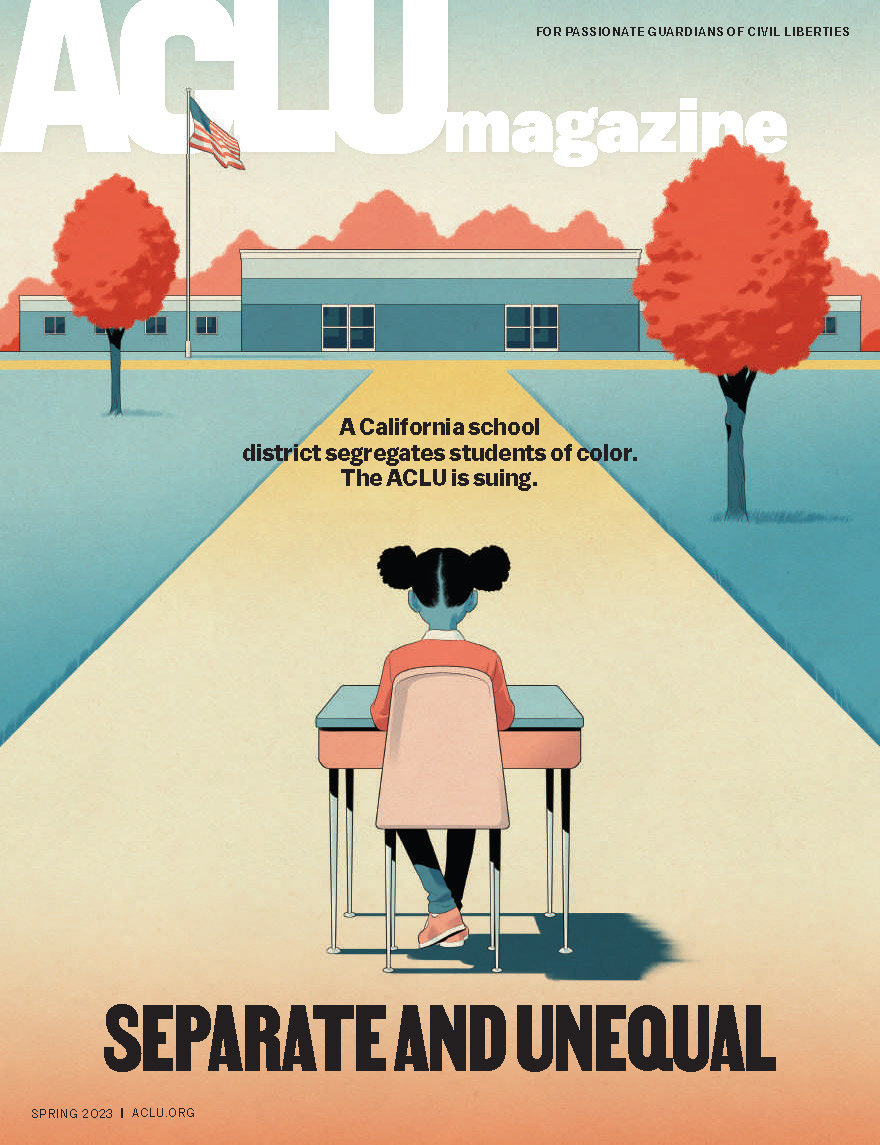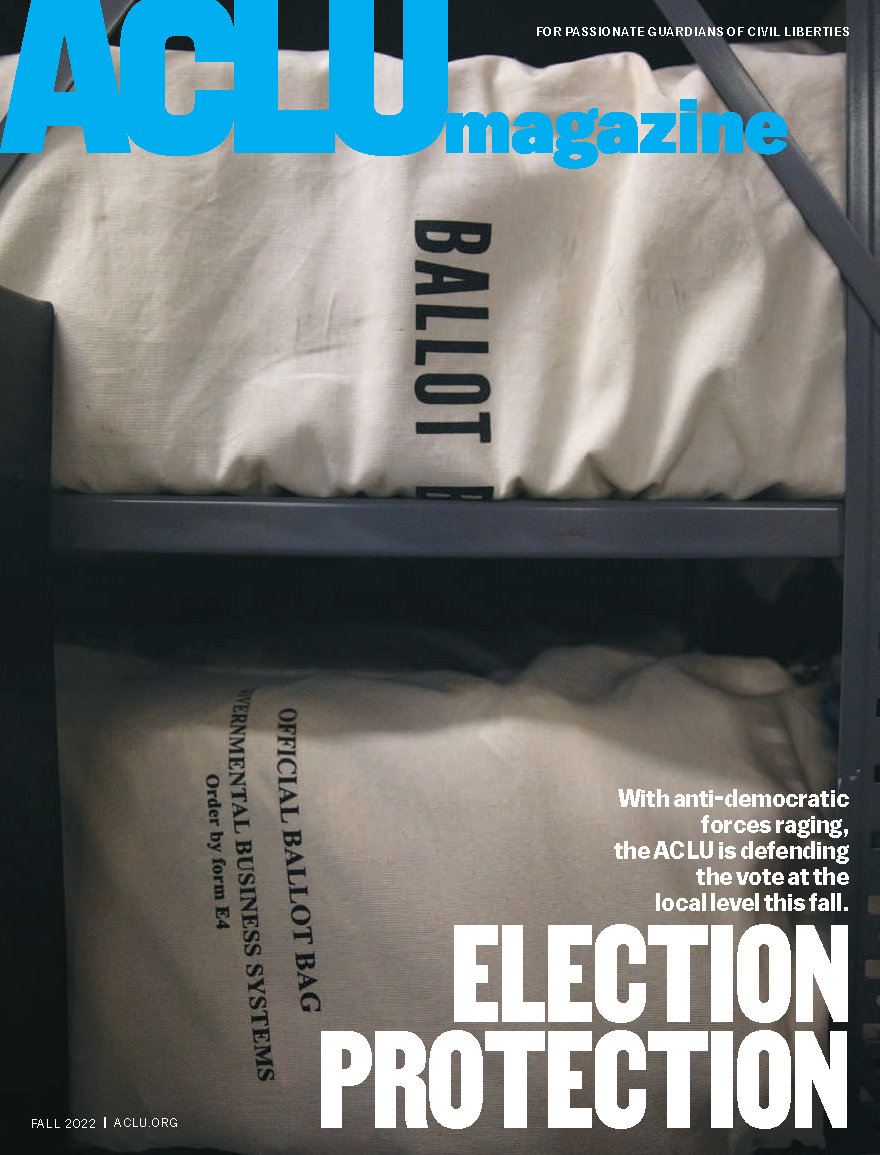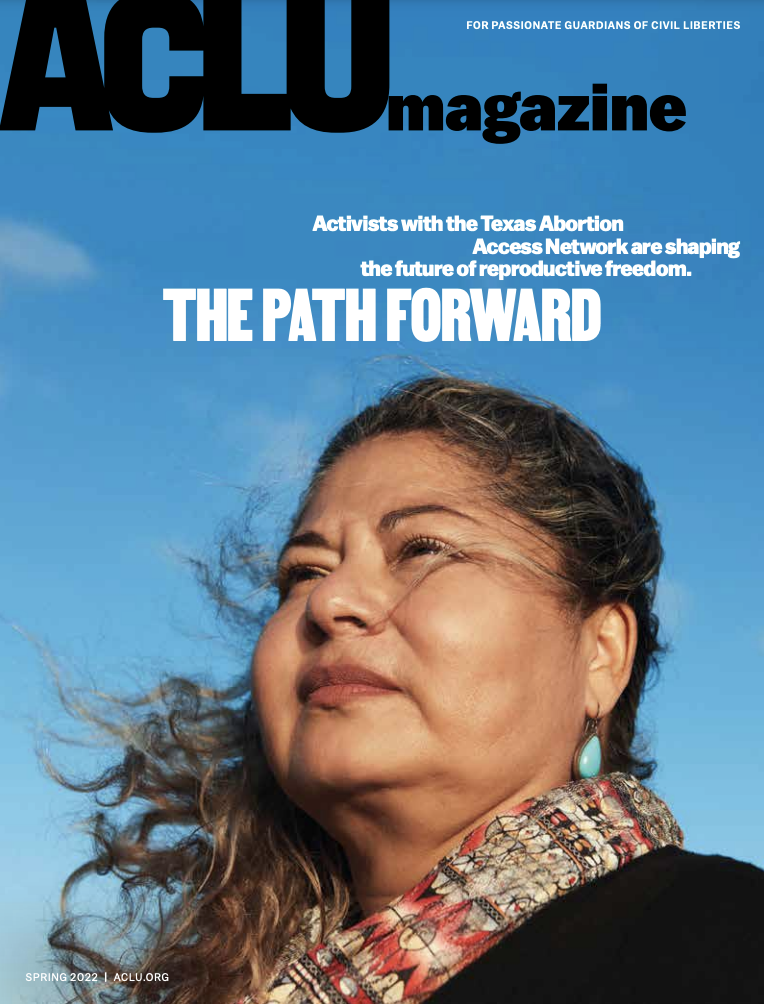Research & Publications
Access in-depth resources and analysis published by the ACLU regarding our most pressing civil liberties issues.
ACLU 2024 Annual Report
The ACLU’s 2024 annual report highlights how the organization worked around the clock this year to safeguard voting rights ahead of the November elections, protect bodily autonomy, defend free speech, and much more. Alongside breakdowns of the ACLU’s key wins and efforts throughout 2024, the report tells the stories of ACLU activists, advocates, and clients who are on the front lines of this fight.
All Publications
Search will open in a new tab using DuckDuckGo
Negligencia Mortal: El ICE pasa por alto las muertes en el Sistema de detención
En este informe se examinan flagrantes violaciones a las normas sobre atención médica establecidas por el propio Servicio de Inmigración y Control de Aduanas de los Estados Unidos (ICE, por sus siglas en inglés), que tuvieron un papel importante en ocho de las defunciones de personas que se encontraban bajo custodia, ocurridas desde 2010 hasta 2012. Un análisis efectuado por la Unión Americana de Libertades Civiles (ACLU, por sus siglas en inglés), Detention Watch Network (DWN por sus siglas en inglés), y el Centro Nacional de Justicia para Inmigrantes (NJIC, por sus siglas en inglés), acerca de las investigaciones hechas por el ICE sobre las muertes y los informes de inspección de los establecimientos revela que si bien los informes del propio ICE detectaron violaciones de sus normas médicas como factores contribuyentes a esas muertes, las inspecciones de los establecimientos de detención del ICE efectuadas antes y después de estas defunciones no reconocieron, y en ocasiones hasta desestimaron, las fallas fundamentales identificadas en las investigaciones sobre las muertes.
Fatal Neglect: How ICE Ignores Death in Detention
Egregious violations of ICE medical care standards played a prominent role in eight deaths in immigration detention facilities from 2010 to 2012. Fatal Neglect: How ICE Ignores Deaths in Detention, a report jointly produced by the American Civil Liberties Union, Detention Watch Network, and National Immigrant Justice Center, examines these deaths and the agency’s response to them. Our research shows that even though ICE conducted reviews that identified violations of medical standards as contributing factors in these deaths, routine ICE detention facility inspections before and after the deaths failed to acknowledge—or at times dismissed—these violations. Instead of forcing changes in culture, systems, and processes that could reduce future deaths, ICE’s deficient inspections system essentially swept the agency’s own death review findings under the rug.
Racial Disparities in Florida Safety Belt Law Enforcement
Black motorists in Florida are stopped and ticketed for seatbelt violations in far greater numbers than white motorists — nearly twice as often statewide and up to four times as often in certain counties — according to a new report from the American Civil Liberties Union. The ACLU is calling for investigation by the Florida Attorney General's Office of Civil Rights and County Commissions charged with oversight over specific law enforcement agencies.
The ACLU’s analysis is based on publicly available data reported by law enforcement agencies across Florida pursuant to the Florida Safety Belt Law. The law requires each agency to annually report to state officials the race and ethnicity of every recipient of a ticket for violating seatbelt requirements. The data is published annually by the Florida Department of Highway Safety and Motor Vehicles. Analysis of the most recent statewide seatbelt citation data shows the law has been applied much more often to Black motorists than to white motorists.
In 2014, Black motorists across Florida were stopped and ticketed for seatbelt violations at nearly twice the rate as white motorists overall. Seatbelt enforcement by specific county sheriff’s departments resulted in even greater disparities. Black motorists were stopped and cited:
4 times more often than white motorists by the Escambia County Sheriff’s Office in 2011 (the most recent year that this agency reported seatbelt citation data);
3 times more often than white motorists by the Palm Beach County Sheriff’s Office in 2014;
2.8 times more often than white motorists by the Orange County Sheriff’s Office in 2014
The report notes that the differences in seatbelt-wearing behavior between Black and white people, as documented by statewide and national studies, do not explain the racial disparities in seatbelt citation rates identified in this report. It also identifies law enforcement agencies that have failed to comply with the Florida Safety Belt Law’s data collection and reporting requirement.
In addition to calling for investigation into the causes of these racial disparities, the ACLU seeks legislation that would, going forward, penalize law enforcement agencies that fail to comply with the statute’s reporting requirement, and recommends that law enforcement collect and analyze data for all traffic and pedestrian stops. It also calls on law enforcement agencies to take promote fair and impartial policing by providing testing on implicit bias, training on bias-free policing to all officers, and supervision and retraining officers whose stop-and-citation practices result in large racial disparities.
Learn more: Black Motorists in Florida Cited for Seatbelt Violations Nearly Twice as Often as White Motorists
This report was amended on April 24, 2016. A description of amendments can be found on pages 36-38.
Report: Fear, Politics, and Ebola
The 2014-2015 Ebola crisis was the largest and most serious such outbreak in history, resulting in more than 28,000 infections and over 11,000 deaths, the overwhelming majority in West Africa. American health care workers played an important role in the response, with U.S.-based relief organizations sending considerable staff and resources to West Africa.
Sexual Assault, Domestic Violence, and Policing
Advocates, service providers, attorneys, and people working in membership-based organizations were invited to share stories and recommendations regarding policing and domestic violence and sexual assault in response to a nationwide survey open for a one-month period in April to May 2015. More than 900 people responded. Responses reflected the themes described in the pages that follow.
Read the full report here, or see highlights from the report.
ACLU Magazine
Published twice a year, ACLU Magazine shares updates on the ACLU's critical litigation and advocacy work across the country and tells the stories of the activists, attorneys, and clients at the heart of each case and campaign. To receive ACLU Magazine by mail, become a monthly donor today.
